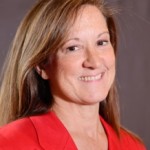CPA/Attorney, Director of Corporate Compliance – Mentor, Carol McNern
This mentor studied accounting in college and began her professional career working for a large public accounting firm auditing and preparing tax returns. After a few years she joined a large public corporation preparing financial reports for shareholders and regulatory agencies, as well as, doing corporate planning and budgeting. She later went to law school while she was working in a corporate accounting position in order to advance her career giving her a broader business perspective. Upon completing her law degree, she tried several legal specialties including criminal law, domestic relations, and tax and audit. She eventually returned to corporate management as the Director of Tax for a closely held limited liability company. Next she was the Treasurer of a closely held corporation. Current she serves as the Director of Corporate Compliance for a closely held corporation where she utilizes her training and experience in both accounting and law. This mentor built a successful professional career through careful planning, hard work and by actively networking with people who helped her pursue her career goals. This article should be read by anyone interested in learning about career opportunities in accounting and the law as well as how to build a professional network. Her article should also be of interest to all women who want to reach the highest levels of corporate management.
Overview
 My mother worked full time when I was growing up. She was a strong independent woman. My older brothers encouraged me to pursue a career and not to feel limited in setting my personal goals because I was a woman. I strive to be independent and was responsible for myself financially when I was fourteen. When I was a junior in high school, I calculated what it would cost for me to attend college and accepted jobs in high school and college that allowed me to fund my college expenses. In high school and college I worked in a clothing store. But it was the well paying jobs I was able to get in the summer working in a glass factory that paid the majority of my college expenses.
My mother worked full time when I was growing up. She was a strong independent woman. My older brothers encouraged me to pursue a career and not to feel limited in setting my personal goals because I was a woman. I strive to be independent and was responsible for myself financially when I was fourteen. When I was a junior in high school, I calculated what it would cost for me to attend college and accepted jobs in high school and college that allowed me to fund my college expenses. In high school and college I worked in a clothing store. But it was the well paying jobs I was able to get in the summer working in a glass factory that paid the majority of my college expenses.
When I entered college, I first believed I wanted to be an engineer. However, I decided in my freshman year to switch my major to accounting and the school of business. Math was a better fit for my goals and skills. I was always interested in solving the puzzle but the design was a greater challenge. I felt I could be more successful choosing the career that best showcased my strengths. Then in my sophomore year I set a goal for myself that upon graduation I would go to work for one of the large public accounting firms where I could learn how a variety of businesses operated. I continued to build a professional network to help me reach that goal. I joined a sorority as well as organizations in accounting such as Beta Alpha Psi, volunteer tutoring for the accounting school and a Small Business Organization dedicated to helping local businesses. I was able to meet people from the large public accounting firms and develop relationships with professors. I learned what the public accounting firms looked for in the people they recruited out of college. I took the right classes and even learned small details like how to dress and speak at an interview. I tried to associate myself with Juniors and Seniors who I believed were going to succeed and could help pull me along by introducing me to the right people within these firms. In the following years, these same people would recruit for the large firms on campus.
After I graduated, I accepted a job with Deloitte Haskins & Sells, currently known as Deloitte & Touche, in tax and audit. I used the experience as a stepping-stone before I decided on the next step in my career. Working at Deloitte as an auditor helped me with this decision because it gave me exposure to a wide variety of businesses and taught me the basic principals of how different industries operated. After several years I left and took a job in the financial reporting department of a large, public company preparing consolidated financial statements, board of director reports, SEC filings and other reports for regulatory agencies as well as shareholder reports and corporate budgets. It was a demanding job. I worked from 9am to 9pm almost seven days a week for two years. I wanted to start a family and needed a job that took less of my time. I left and accepted a position in the accounting department of a major airline. I stayed for ten years during which time I had two children.
This position with the airline was the first time that I felt that because I was a woman I was not being taken seriously. One particular example stands out to me. My group developed a way to better manage packages being shipped on the airline using bar codes and bar code readers; something that is common today but at the time was a cutting edge technology. At that time, all the shipment data was being entered manually and could not be tracked in route. There was no bar code or readers that could scan the packages en route. Consequently many packages were mishandled or lost. A problem the proposed bar code and wand reader system would have solved. The idea was dismissed by upper management when we presented it to them I believe in part because they did not take women’s ideas seriously. Upper management looked at me and said “That will never work, when is your baby due”. Today the basic system we designed and presented to senior management is standard practice on all airlines.
Because I wanted to be taken seriously, earn more money and be able to more effectively control my time, I decided to attend law school. I did this by going part-time while continuing my accounting position at the airline. I earned my law degree in three and a half years, passed the bar and left the airline after working there for ten years. I tried a number of areas of the law including criminal, domestic relations and tax and audit. I found out that I didn’t like high conflict litigation and gravitated back to tax and accounting. It was an area of the law where I could use both my accounting and legal training and an area of business management that I enjoyed. So rather than continuing to work for a law firm, I took a job with a closely held company as the Director of Tax for a closely held limited liability company. Next I served as the Treasurer of a closely held corporation. Current I serve as the Director of Corporate Compliance for a closely held corporation where I utilize my training and experience in both accounting and law. I like the variety in the job. I work with bank documents, handle legal personnel issues, payroll issues, 401Ks, develop tax strategies and handle audits by state and federal regulatory agencies. When working with these agencies, my experience as an auditor and attorney has been helpful because I know what these regulatory auditors are looking for and how to keep the company in compliance with their regulations. It is a well-managed company where I feel my work is respected and my ideas are taken seriously.
How to Prepare Yourself for College and Your Career
I believe that it is important that you challenge yourself beginning in high school. Take the most demanding classes and not the easy route to graduation. This will help you when you enter college where you will have to compete with the best high school students to achieve a high class ranking, something that will distinguish you from the other graduates entering college. While in college stay focused and prepare yourself to be interviewed by potential employers. The higher your rank the more likely you will be able to receive job offers from the companies you want to target.
Look at the people who have been successful in the career you want to pursue and see how important a particular college degree is to their success. Then attend the university where you find value. There are a few careers where most of the people at the top have attended prestigious private schools. But there are many careers where the people in upper management graduated at state supported colleges and universities that are much less expensive.
Either way, look at scholarship opportunities. If you have taken demanding classes in high school and have a good transcript, you should have an excellent chance of getting a scholarship to cover some of the cost. In fact, I know of one woman who just received a 90% scholarship to obtain her MBA at an expensive private school. Apply for all the scholarships and grants that might be available.
Another way to cut the cost of college is to attend a community college for the first two years. Many community colleges work with state supported colleges and universities to insure that the credit earned at the community college will transfer to the university. Furthermore, in my home town of Tulsa, two years of community college can be free.
Networking is important beginning in college and all through your career. I joined a sorority where I met people who I am still in contact with today. The sorority also helped me learn how to run meetings and budget my time. There are also professional societies you can join in college and continue with throughout your career. To network with other accounting students I joined an accounting organization Beta Alpha Psi. To meet other civic-minded individuals I became a Big Sister volunteer. I tutored other accounting majors struggling with their classes for the accounting school. There are many organizations within your school that will provide an opportunity. There you will meet people with experience who can become your mentors as well as other people in positions who can help you advance your career.
What To Do Once You Begin Your Career
To advance at any modern organization, it is important that you project yourself as a positive person and that you learn to motivate people by helping them succeed. This means showing people trips and tricks in doing their jobs better when they don’t perform and learning how to only deliver positive constructive criticism.
Be transparent. People should not have to guess what you are thinking. Open up and communicate with people in a frank and honest way.
Women need to support other women. This may seem like an unusual statement. But my experience has been that women in business normally do not support each other as strongly as men. I feel this is one of the reasons women do not advance as far as men when it comes to reaching the highest rungs of management in large businesses. Never tear down other women and try to understand where their life experiences have influenced and developed their opinions.
Find a mentor in your career. Appeal to someone who has been successful to tap into their experience and their wisdom. Ask questions and develop the most important skill of listening. Never be afraid to surround yourself with people smarter than yourself.
Open yourself up to different kinds of people. It is important that you get a variety of perspectives on any business problem. It is very important that you respect and appreciate all contributions as well as consider new and different viewpoints and solutions.
Continue to network throughout your career so that you can identify promising people you may want to hire as well as new career opportunities.
Summary
I feel fortunate that I have been able to advance my career and reach a level in upper management where I can fully utilize my training and experience. I continually search for personal improvement opportunities. It is important to me that I be respected as a manager and not be inhibited with the gender bias I felt I encountered at times as I moved up the corporate ladder. That is something that has never been a concern in my present position. For a young person starting out and particularly for a woman, it is important that you plan your career path early and think about where you want to be at different stages in your professional life. I also believe that everyone looking to succeed in a business career should begin building a professional network in college and continue that process throughout your career. My experience has been that these relationships are one of any professional person’s greatest assets. I recommend always striving to gain confidence and self-control. The greatest contribution you can make is to build and develop others, avoid defensive and destructive behavior and give credit where credit is due to others. In the words of Albert Enstein Try not to become a woman of success but a woman of value. These things will help you become a better leader and help you accomplish your goals.
US Bureau of Labor Statistics for Accountants and Auditors
The median annual wage for accountants and auditors was $63,550 in May 2012.
Employment of accountants and auditors is projected to grow 13 percent from 2012 to 2022, about as fast as the average for all occupations. In general, employment growth of accountants and auditors is expected to be closely tied to the health of the overall economy. As the economy grows, these workers will continue to be needed to prepare and examine financial records.
US Bureau of Labor Statistics for Lawyers
The median annual wage for lawyers was $113,530 in May 2012.
Employment of lawyers is projected to grow 10 percent from 2012 to 2022, about as fast as the average for all occupations. Competition for jobs should continue to be strong because more students graduate from law school each year than there are jobs available.






